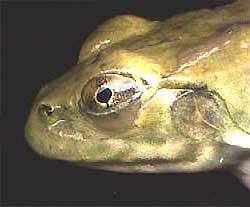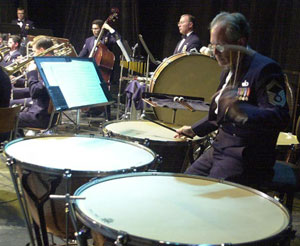Remembering Mr. Bowers
I know enough biology to survive most conversations. The terms I don’t normally use come back to me in a pinch—like when I’m helping a kid study. I credit this recollection to Mr. Bowers, my tenth grade biology teacher. I don’t mean to imply that my other science teachers taught me nothing. I’m only saying that I can’t remember their spoken words—coming from their mouths—the way I do Mr. Bowers'.
By the time I stepped into his classroom in 1971, he was nearing retirement and comfortably overweight; his face had grown around his eye glasses so that they left Play-Doh imprints on his nose and temples when he took them off.
He did not dress like the young, popular teachers and yet he fell far short of being quaint. He lacked the classical charm of Mr. Chips; the passion of Robyn Williams in Dead Poets Society; the blind idealism of Kevin Kline in The Emperor's Club; and there was no opus waiting to be performed for him. In fact, if there is any movie character that hints at Mr. Bowers' lecturing style it’s Ben Stein’s “Mr. Anyone-anyone” in Ferris Bueller's Day Off—except in one regard….
Mr. Bowers' resonant voice kept me alert in his class. I had heard about it from my brother Dave back in ‘69. Dave is an impromptu impressionist—not of famous personalities—but real-life caricatures from the stage of our small world. He used to study for biology tests in our bedroom by imitating Mr. Bowers. By the time I actually sat in room 206 of Carl Brablec High School, I felt I knew him.
I soon learned that Dave’s impersonations were kindly accurate. Mr. Bowers' mere utterance of biology terms gave them a life of their own. My all-time favorite was endoplasmic reticulum. What a great term. No matter what it means (and yes I do know what it means), it's a great word to say if you want to sound intelligent—like a doctor: "I'm sorry Ma'am, but your son has acute infection of the endoplasmic reticulum. It's serious but treatable." Or a mechanic: "Start 'er up, Sir. Yep, that noise is fer sure yer endoplasmic reticulum. I can order a new one fer 'bout eighty bucks." Or a maestro: "Now for our last number of the evening, we invite you to follow along in the program on page 4, Tchaikovsky's Endoplasmic Reticulum in D minor.
Let's face it endoplasmic reticulum is probably the best "utility player" in the lineup of multi-syllabic science terms. As impressive as that fact is, the word never sounded better than when it came out of Mr. Bowers' mouth with the smooth grace of a lava lamp: endo…plas…mic…re..tic...u…lum. He clearly relished each syllable and loved finding ways to help us learn and remember his pet words.
Not every science term stuck with me as well as my favorite. I was taking a test on amphibians and still had one question left when the bell rang. The classroom emptied as I remained seated at a black lab table in the second row tapping a pen against my head. Mr. Bowers pulled up the chair beside me. “What are you stuck on, Tom?”
“This two-word answer for the external "ear drum" on both sides of a frog's head.”
“I’m sure you know this answer, Tom. It's two words but five syllables. What’s on the inside of the frog’s skull?” he asked.
“His brain?” I winced uncertainly.
“Exactly right. ReMEMber that "brain" is the last syllable of this answer. Now do you remember the first word of the answer?”
I felt really bad for him because I could tell this was a bonehead clue that should have helped me, but I was still clueless, so he gave be bonehead clue number two.
“Tom, what do we call the big copper-colored Drums in the band?”
 “Oh, I know that. Kettle drums, but Kettle drum is two words.”
“Oh, I know that. Kettle drums, but Kettle drum is two words.”
“Well, they do call them kettle drums sometimes, but their real name starts with a ‘T.’ Have you ever seen The Music Man and heard the song '76 Trombones’?” I nodded. “Think about the description of that parade. What comes after “There were copper-bottom_______?”
The trouble with my learning facts with songs is that I have to start from the beginning no matter where the needed fact is. I still have this issue with the alphabet song. So I started singing "Seventy-six trombones" in my head and finally got to, “There were copper bottom tympani in horse platoons /Thundering, thundering, all along the way.”
“That’s it, Tom—tympani! The frog’s eardrum is just like a little tympani about the size of my shirt button. So what’s the answer?”
He had gently pulled the chain on the attic light and hoped that the bulb would stay lit. Fortunately it did, and I remembered the term from some forgotten lecture:
“Tympanic membrane,” I blurted like a Jeopardy champ.
"Right it down and remember it," laughed Mr. Bowers.
I don’t remember what I got on that test, but I’ve never forgotten tympanic membrane and the fact that my science teacher took a minute to teach a left-brain fact from a right-brain angle.
Twenty years later I tried the same thing with a struggling student of mine. He was at risk of failing British Literature and came up to my desk stumped on a fill-in-the-blank question reading: "What was the name of Shakespeare's theater?"
 "Can you give me a hint?" he mumbled hoping his classmates wouldn't hear.
"Can you give me a hint?" he mumbled hoping his classmates wouldn't hear.
I immediately remembered Mr. Bowers, and without hesitation I touched the GLOBE that sat on the corner of my desk.
"I'm not sure I can give you a hint," I said with a knowing look.
"Please, I know I know this but my mind is blank."
I spun the GLOBE this time, glared at it wide-eyed and said, "Think about it a minute."
His face scrunched. "Arrrre... you giving me a hint?"
"No. I'm just spinning this GLOBE." A light went on in his head.
"Oh... I get it." he whispered, "Thanks, Mr. K."
He wrote down his answer and turned in his test. The fresh ink screamed out: "The World Stage."
I got his attention and quietly motioned him back to my desk.
"I touched the GLOBE. I spun the GLOBE. I said the word GLOBE. Why did you write 'WORLD'?"
Because Shakespeare said, "All the world's a stage, and all the men and women merely players."
My jaw dropped. I was amazed.
"That quotation is not on this test." I said.
"I know, but it's a cool quote."
"I'm impressed, and I do believe you've hit upon the reason he called his theater by this name, but the word you're looking for is not world." I looked again at the globe.
"Oh, yeah, the GLOBE Theater," he smiled.
"Right it down and remember it," I laughed.
I know there are fine teachers who would disagree strongly with how I got "tympanic membrane" right in '71 and how my student got "Globe Theatre" right in '91. All I know is I vividly remember both moments in the more than 2.5 million classroom minutes of my career as a student and teacher. There's something to be said for that. Teachable moments are far more important than the teachable facts that cause them.
At the end of that '71-72 school year, Mr. Bowers told us he would not be returning the next year—he was retiring to his home in Armada, Michigan, home of the "true county fair," he so often promoted. What he did not tell us in his farewell was that he had cancer and had been battling it for some time. None of us knew, but I have to think his secret played a small part in the avuncular care he showed me that year.
The summer flew by, and on the first day of school, we were told over the PA system that Mr. Bowers had passed away. The funeral had come and gone the week before. No students knew and none attended.
Thank you, Mr. Bowers. I had reason to remember you again this week, and a struggling student (whose parents and grandparents are the age of your former pupils) benefited this week from that lesson you taught me thirty-five years ago .
By the time I stepped into his classroom in 1971, he was nearing retirement and comfortably overweight; his face had grown around his eye glasses so that they left Play-Doh imprints on his nose and temples when he took them off.
He did not dress like the young, popular teachers and yet he fell far short of being quaint. He lacked the classical charm of Mr. Chips; the passion of Robyn Williams in Dead Poets Society; the blind idealism of Kevin Kline in The Emperor's Club; and there was no opus waiting to be performed for him. In fact, if there is any movie character that hints at Mr. Bowers' lecturing style it’s Ben Stein’s “Mr. Anyone-anyone” in Ferris Bueller's Day Off—except in one regard….
Mr. Bowers' resonant voice kept me alert in his class. I had heard about it from my brother Dave back in ‘69. Dave is an impromptu impressionist—not of famous personalities—but real-life caricatures from the stage of our small world. He used to study for biology tests in our bedroom by imitating Mr. Bowers. By the time I actually sat in room 206 of Carl Brablec High School, I felt I knew him.
I soon learned that Dave’s impersonations were kindly accurate. Mr. Bowers' mere utterance of biology terms gave them a life of their own. My all-time favorite was endoplasmic reticulum. What a great term. No matter what it means (and yes I do know what it means), it's a great word to say if you want to sound intelligent—like a doctor: "I'm sorry Ma'am, but your son has acute infection of the endoplasmic reticulum. It's serious but treatable." Or a mechanic: "Start 'er up, Sir. Yep, that noise is fer sure yer endoplasmic reticulum. I can order a new one fer 'bout eighty bucks." Or a maestro: "Now for our last number of the evening, we invite you to follow along in the program on page 4, Tchaikovsky's Endoplasmic Reticulum in D minor.
Let's face it endoplasmic reticulum is probably the best "utility player" in the lineup of multi-syllabic science terms. As impressive as that fact is, the word never sounded better than when it came out of Mr. Bowers' mouth with the smooth grace of a lava lamp: endo…plas…mic…re..tic...u…lum. He clearly relished each syllable and loved finding ways to help us learn and remember his pet words.
Not every science term stuck with me as well as my favorite. I was taking a test on amphibians and still had one question left when the bell rang. The classroom emptied as I remained seated at a black lab table in the second row tapping a pen against my head. Mr. Bowers pulled up the chair beside me. “What are you stuck on, Tom?”
“This two-word answer for the external "ear drum" on both sides of a frog's head.”

“I’m sure you know this answer, Tom. It's two words but five syllables. What’s on the inside of the frog’s skull?” he asked.
“His brain?” I winced uncertainly.
“Exactly right. ReMEMber that "brain" is the last syllable of this answer. Now do you remember the first word of the answer?”
I felt really bad for him because I could tell this was a bonehead clue that should have helped me, but I was still clueless, so he gave be bonehead clue number two.
“Tom, what do we call the big copper-colored Drums in the band?”
 “Oh, I know that. Kettle drums, but Kettle drum is two words.”
“Oh, I know that. Kettle drums, but Kettle drum is two words.”“Well, they do call them kettle drums sometimes, but their real name starts with a ‘T.’ Have you ever seen The Music Man and heard the song '76 Trombones’?” I nodded. “Think about the description of that parade. What comes after “There were copper-bottom_______?”
The trouble with my learning facts with songs is that I have to start from the beginning no matter where the needed fact is. I still have this issue with the alphabet song. So I started singing "Seventy-six trombones" in my head and finally got to, “There were copper bottom tympani in horse platoons /Thundering, thundering, all along the way.”
“That’s it, Tom—tympani! The frog’s eardrum is just like a little tympani about the size of my shirt button. So what’s the answer?”
He had gently pulled the chain on the attic light and hoped that the bulb would stay lit. Fortunately it did, and I remembered the term from some forgotten lecture:
“Tympanic membrane,” I blurted like a Jeopardy champ.
"Right it down and remember it," laughed Mr. Bowers.
I don’t remember what I got on that test, but I’ve never forgotten tympanic membrane and the fact that my science teacher took a minute to teach a left-brain fact from a right-brain angle.
Twenty years later I tried the same thing with a struggling student of mine. He was at risk of failing British Literature and came up to my desk stumped on a fill-in-the-blank question reading: "What was the name of Shakespeare's theater?"
 "Can you give me a hint?" he mumbled hoping his classmates wouldn't hear.
"Can you give me a hint?" he mumbled hoping his classmates wouldn't hear.I immediately remembered Mr. Bowers, and without hesitation I touched the GLOBE that sat on the corner of my desk.

"I'm not sure I can give you a hint," I said with a knowing look.
"Please, I know I know this but my mind is blank."
I spun the GLOBE this time, glared at it wide-eyed and said, "Think about it a minute."
His face scrunched. "Arrrre... you giving me a hint?"
"No. I'm just spinning this GLOBE." A light went on in his head.
"Oh... I get it." he whispered, "Thanks, Mr. K."
He wrote down his answer and turned in his test. The fresh ink screamed out: "The World Stage."

I got his attention and quietly motioned him back to my desk.
"I touched the GLOBE. I spun the GLOBE. I said the word GLOBE. Why did you write 'WORLD'?"
Because Shakespeare said, "All the world's a stage, and all the men and women merely players."
My jaw dropped. I was amazed.
"That quotation is not on this test." I said.
"I know, but it's a cool quote."
"I'm impressed, and I do believe you've hit upon the reason he called his theater by this name, but the word you're looking for is not world." I looked again at the globe.
"Oh, yeah, the GLOBE Theater," he smiled.
"Right it down and remember it," I laughed.
I know there are fine teachers who would disagree strongly with how I got "tympanic membrane" right in '71 and how my student got "Globe Theatre" right in '91. All I know is I vividly remember both moments in the more than 2.5 million classroom minutes of my career as a student and teacher. There's something to be said for that. Teachable moments are far more important than the teachable facts that cause them.
At the end of that '71-72 school year, Mr. Bowers told us he would not be returning the next year—he was retiring to his home in Armada, Michigan, home of the "true county fair," he so often promoted. What he did not tell us in his farewell was that he had cancer and had been battling it for some time. None of us knew, but I have to think his secret played a small part in the avuncular care he showed me that year.
The summer flew by, and on the first day of school, we were told over the PA system that Mr. Bowers had passed away. The funeral had come and gone the week before. No students knew and none attended.
Thank you, Mr. Bowers. I had reason to remember you again this week, and a struggling student (whose parents and grandparents are the age of your former pupils) benefited this week from that lesson you taught me thirty-five years ago .


4 Comments:
wow, what a memorable story. i know this is an old blog post, but i was reading your profile and wanted to check out the link you have there. i don't even know if this is the story i'm supposed to read from that link, but it's a great story. i've had a couple of teachers and professors who've done the same thing. i felt sad when i read about mr bowers' death, but look how years later, his name is still remembered in a good way.
I have no idea how I found this comment within a day of writing it. I was actually looking for an old post called Crop Circles--can't find it. Thanks for commenting on a year-old post. I don't think I've had that happen before. It stood out to me because back when I wrote this hardly anyone ever commented here. =)
a brand new high school english teacher said...
Thank you for sharing Mr. B's story - I've been asked far too many times to count over the past two years why I have decided to change careers - "especially teaching high schoolers, are you crazy?" I haven't had one simple answer, but the consistent one I've found myself giving is that I just have to/need to/want to do this. I'm beginning to see that it is these "teachable moments" that I am so hoping to experience and to learn from myself! Please stop by once school opens - or anytime - to share in my trek. Peace, Amy
relocated by POI 6-18-07
Tom~ Thanks for sending me here. Mr. B was a very special man that loved what he was doing and it shows. You continue that legacy today and that is a blessing indeed.
Post a Comment
<< Home